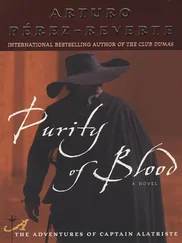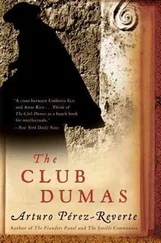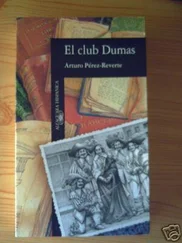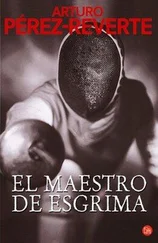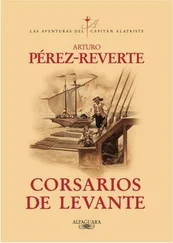Arturo Pérez-Reverte - The King's Gold
Здесь есть возможность читать онлайн «Arturo Pérez-Reverte - The King's Gold» весь текст электронной книги совершенно бесплатно (целиком полную версию без сокращений). В некоторых случаях можно слушать аудио, скачать через торрент в формате fb2 и присутствует краткое содержание. Жанр: Старинная литература. Описание произведения, (предисловие) а так же отзывы посетителей доступны на портале библиотеки ЛибКат.
- Название:The King's Gold
- Автор:
- Жанр:
- Год:неизвестен
- ISBN:нет данных
- Рейтинг книги:4 / 5. Голосов: 1
-
Избранное:Добавить в избранное
- Отзывы:
-
Ваша оценка:
- 80
- 1
- 2
- 3
- 4
- 5
The King's Gold: краткое содержание, описание и аннотация
Предлагаем к чтению аннотацию, описание, краткое содержание или предисловие (зависит от того, что написал сам автор книги «The King's Gold»). Если вы не нашли необходимую информацию о книге — напишите в комментариях, мы постараемся отыскать её.
The King's Gold — читать онлайн бесплатно полную книгу (весь текст) целиком
Ниже представлен текст книги, разбитый по страницам. Система сохранения места последней прочитанной страницы, позволяет с удобством читать онлайн бесплатно книгу «The King's Gold», без необходимости каждый раз заново искать на чём Вы остановились. Поставьте закладку, и сможете в любой момент перейти на страницу, на которой закончили чтение.
Интервал:
Закладка:
“Since when have you involved God in these matters, don Francisco?”
“You’re right, but with or without him, there will be no shortage of gold.”
He lowered his voice, whether at the mention of God or gold I’m not sure. The two long years that had passed since our encounter with the Inquisition—when don Francisco de Quevedo had plucked me from an auto-da-fé by dint of some very fast riding—had placed two more furrows in his forehead. He seemed somewhat weary as he toyed with his inevitable mug of wine, on this occasion a good white wine from Fuente del Maestre. The sunshine coming in through the window simultaneously caught the golden pommel of his sword and my hand resting on the table, and traced a line of light around Captain Alatriste’s profile. Enrique Becerra’s inn, famous for its lamb in honey sauce and stewed pork jowls, was near the public bawdy house in Compás de la Laguna, next to the Puerta del Arenal, and from the top floor, beyond the walls and the flat roof where the whores hung their linen out to dry, could be seen the masts and pennants of ships moored in Triana, on the far side of the river.
“As you see, Captain,” added the poet, “once again, there’s nothing for it but to fight, although this time I will not be coming with you.”
Now he was smiling in a friendly, reassuring fashion, with that singular affection he always reserved for us.
“Well,” muttered Alatriste, “we each have our own fate to follow.”
The captain was dressed entirely in brown, with a suede doublet, a flat Walloon collar, canvas breeches, and military-style gaiters. He had left his last pair of boots, their soles full of holes, on board the Levantina, having swapped them with the sub-galleymaster for some dried mullet roe, some boiled beans, and a wineskin to sustain us on the journey upriver. For that and other reasons, my master did not seem particularly upset to find that the first thing he should meet with when setting foot again on Spanish soil was an invitation to return to his old profession. Perhaps because the commission came from a friend or perhaps because, according to that friend, the commission came from much higher up, but mainly, I suspect, because the money purse we had brought back with us from Flanders made not a sound when shaken. From time to time, the captain would regard me thoughtfully, as if wondering just where my nearly sixteen years and the skills he himself had taught me fit in with all this. I didn’t wear a sword, of course, and only a misericordia, a dagger of mercy, hung from my belt at my back, but I had been tried and tested in the fire of war; I was bright, quick, and brave and very useful when called upon to serve. The question Alatriste was asking himself, I suppose, was whether to include me or to exclude me. Although, given the way things were, he could no longer make that decision alone; for good or ill, our lives were intertwined. And as he himself had just remarked, each man has his own fate to follow. As for don Francisco, to judge by the way he was looking at me, astonished at how I’d shot up and at the fuzz of hair on my upper lip and cheeks, I guessed that he was thinking exactly the same: I had reached the age when a lad is just as capable of dealing out sword thrusts as receiving them.
“And Íñigo goes too,” Queredo said.
I knew my master well enough to know when to keep silent, which is precisely what I did, following his example and staring into my mug of wine on the table before me—for as regards wine, too, I had grown up. Don Francisco’s comment was not a question, merely an affirmation of an obvious fact, and after a silence, Alatriste nodded slowly and resignedly. He did so without even looking at me, and I felt an inner surge of joy, bright and strong, which I concealed by putting the mug of wine to my lips. The wine tasted to me of glory, maturity, adventure.
“So let’s drink to Íñigo,” said Quevedo.
We drank, and the accountant Olmedilla, that small, pale fellow, all in black, joined us not by raising his glass but with another brief nod of the head. As for the captain, don Francisco, and myself, this was not the first toast of the day, since the three of us had embraced at the pontoon bridge connecting Triana and El Arenal, after we had disembarked from the Levantina . The captain and I had sailed along the coast from El Puerto de Santa María, past Rota, before crossing the bar at Sanlúcar and continuing on to Seville, passing first the great pinewoods growing along the sandy banks and then, farther upriver, the dense groves of trees, orchards, and forests on the shores of what the Arabs called Uad el Quevir, the great river. In contrast, what I remember most about that journey is the stink of dirt and sweat, the galleymaster’s whistle marking time, the labored breathing of the galley slaves, and the clink of their chains as the oars entered and left the water with rhythmic precision, driving the galley forward against the current. The galleymaster, sub-galleymaster, and constable walked up and down the gangway, keeping a watchful eye on their parishioners, and every now and then the whip would come down hard on the bare back of some idler and weave him a doublet of lashes. It was painful to watch the oarsmen, one hundred and twenty men seated on twenty-four benches, five to each oar, with their shaved heads and heavily bearded faces, their torsos shining with sweat as they rose and fell and worked the long oars. There were Moorish slaves, former Turkish pirates, and renegades, as well as Christians serving sentences meted out by a justice they had not had gold enough to buy.
Alatriste said to me, “Never let them get you onto one of these ships alive.”
His cold, pale, inscrutable eyes were watching the poor unfortunates row. As I said, my master knew this world well, for he had served as a soldier on the galleys of the Naples regiment during the Battle of La Goleta and in attacks on the Kerkennah Islands; and after fighting Venetians and Berbers, he himself, in 1613, came very close to being forced to serve on a Turkish galley. Later, when I was one of the king’s soldiers, I, too, sailed the Mediterranean on these ships, and I can assure you that few seaborne inventions bear a closer resemblance to Hell. To give a measure of the harshness of a galley slave’s life, suffice it to say that even for the very worst crimes, the term meted out was never more than ten years on the galleys, for they calculated this to be the maximum length of time any man could survive without losing health, reason, and life to hardship and the lash: Take off the man’s shirt,
To wash his soft flesh,
See what’s written by the lash,
Bold and bloody ’neath the dirt.
Thus, by dint of whistle and oar, we had traveled up the Guadalquivir and arrived in the most fascinating city, trading port, and marketplace in the world, a gold and silver galleon anchored between glory and misery, opulence and profligacy, capital of the Ocean Sea and of all the wealth brought by the annual treasure fleet from the Indies; a city populated by nobles, merchants, clerics, rogues, and alluring women; a city so rich, powerful, and beautiful that neither Tyre nor Alexandria in their day could have equaled it. Homeland and home to all who came to her, a place of inexhaustible marvels, a mother to orphans and a cloak for sinners, just like the Spain of those wretched and magnificent times, a place where poverty was everywhere, and yet a place where no one capable of scraping a living need ever be poor. Where everything was wealth, but where it took but a moment’s inattention to lose it all—as easily as one could lose one’s life.
We spent a long time at the inn, talking but without exchanging one word with the accountant Olmedilla; however, as soon as Olmedilla stood up to leave, Quevedo instructed us to go after him, following at a distance. It would be a good thing, he explained, for Captain Alatriste to familiarize himself with the man. We walked along Calle de Tintores, astonished at the number of foreigners frequenting the inns there, then we set off for Plaza de San Francisco and the Cathedral, and from there, through Calle del Aceite, we reached the Mint, near the Torre del Oro, where Olmedilla had some business to attend to. As you can imagine, I, wide-eyed, was busily taking everything in: the newly swept doorways where women were emptying out their washbowls or planting up pots with flowers; the shops selling soap, spices, jewels, and swords; the boxes of fruit outside the fruiterer’s; the gleaming basins that hung above the door of every barber; the street sellers; the ladies accompanied by their duennas; the men haggling; the grave-faced canons mounted on their mules; the black and Moorish slaves; the houses painted in red ocher and whitewash; the churches with their glazed tile roofs; the palaces; the orange and lemon trees; the crosses placed at the corners of streets to commemorate some violent death or simply to discourage passersby from relieving themselves . . . And even though it was still winter, everything glittered beneath a splendid sun that caused my master and don Francisco to fold up their cloaks and wear them slung crosswise over chest and shoulder or else to throw back their capes and undo the loops and buttons on their doublets. The knowledge that the king and queen were both in Seville only added to the natural beauty of the place, and that celebrated city and its more than one hundred thousand inhabitants bubbled with excitement and celebration. Unusually that year, King Philip IV was preparing to honor with his august presence the arrival of the treasure fleet, which would be bringing with it a fortune in gold and silver to be distributed—unfortunately, rather than fortunately, for us—to the rest of Europe and the world. The overseas empire that had been created a century before by Cortés, Pizarro, and other adventurers with few scruples and a great deal of pluck, with nothing to lose but their lives and with everything to gain, now provided a constant flow of wealth that allowed Spain to pay for the wars in which it was embroiled with half the known world, wars waged in defense of our military hegemony and of the one true religion, money that was even more necessary, were that possible in a country like ours, where—as I have said before—absolutely everyone gave himself airs, where work was frowned upon and commerce held in low esteem, and where the dream of every scoundrel was to be granted letters patent of nobility and thus live a life free from taxes and from work. Young men, understandably, preferred to try their fortune in the Indies or in Flanders rather than languish in Spain’s barren fields, at the mercy of an idle clergy, an ignorant, decadent aristocracy, and a corrupt government bureaucracy eager to suck the blood and the life out of them. It is said, and it is very true, that the moment when vice becomes the custom marks the death of a republic, for the dissolute person ceases to be considered loathsome, and all baseness becomes normal. It was thanks to the rich deposits in the Americas that Spain was able, for so long, to maintain an empire based on that abundance of gold and silver and on the quality of its coinage, which served both to pay the armies—when indeed they were paid—and to import foreign goods and products; for although we could send flour, oil, vinegar, and wine to the Indies, everything else came from abroad. This obliged us to go elsewhere for supplies, and our much-valued gold doubloons and our famous silver pieces of eight played a major role. We survived thanks to the vast quantities of coins and bars of gold that traveled from Mexico and Peru to Seville, whence they were immediately scattered throughout all the other countries of Europe and even the Orient, ending up as far away as India and China. The truth is that all this wealth benefitted everyone except the Spanish: since the Crown was always in debt, the money was spent before it even arrived; as soon as it was disembarked, the gold left Spain to be squandered in those lands where we were at war, vanished into the Genoese and Portuguese banks that were our creditors, and even into the hands of our enemies. To quote don Francisco de Quevedo: In the Indies he was born an honest man,
Читать дальшеИнтервал:
Закладка:
Похожие книги на «The King's Gold»
Представляем Вашему вниманию похожие книги на «The King's Gold» списком для выбора. Мы отобрали схожую по названию и смыслу литературу в надежде предоставить читателям больше вариантов отыскать новые, интересные, ещё непрочитанные произведения.
Обсуждение, отзывы о книге «The King's Gold» и просто собственные мнения читателей. Оставьте ваши комментарии, напишите, что Вы думаете о произведении, его смысле или главных героях. Укажите что конкретно понравилось, а что нет, и почему Вы так считаете.




